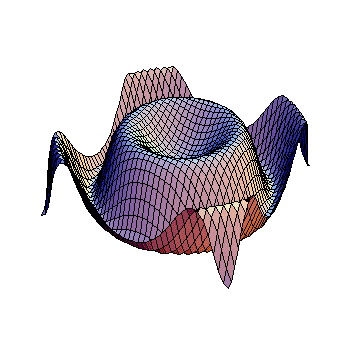How do you solve #log[(x + 3)(x - 8)] + log[(x + 3)/(x - 8)] = 2#?
1 Answer
Explanation:
By the rules of logarithms,
We cancel the (x-8) on the numerator and the denominator
The problem told us that that equaled 2, so
We know that if
We use 10 because if the log doesn't have a base, it's implicitly 10. (Also note that we couldn't have put that square to the front of the logarithm and cut it with the 2 because we'd lose a root if we did it)
Now we take the square root,
And solve these values
But before that, check for the values we know x can't be! Logarithms can't take null or negative arguments so we know
We know that
------(-3)++++++++++++
----------------------(+8)++
++++0---------------0+++
We know we can't take values that are 0 or negative, so

